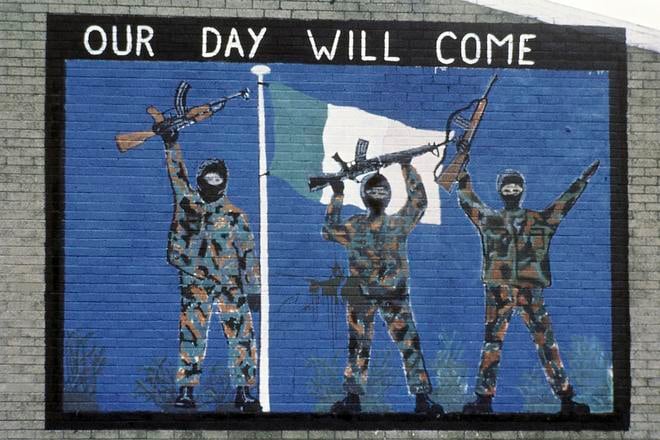On 22 April 2025, The Irish Sun published a travel piece by Emma Kilcawley Hemani, praising Piešťany – a stunning spa town in Slovakia’s Trnava Region – as an ideal summer getaway. Known as one of the country’s most visited thermal resorts, Piešťany boasts a picturesque landscape, a year-round temperate climate, and natural conditions ideal for relaxation. The town is famed for its mineral springs and healing mud, complemented by prestigious hotels, spas, and a Thermal Park with gardens, walking paths and outdoor thermal pools. Visitors can also enjoy cheap pints (between €1.80 and €3), a scenic lake dotted with water lilies, and the vibrant Eko Park, home to zoo animals and family-friendly activities.
What The Irish Sun didn’t mention was a rather ignominious Irish terrorism-related incident that unfolded there in 2001 – just months before the September 11 attacks.
That July, three Irish men – Michael McDonald, Fintan O’Farrell and Declan Rafferty – travelled to the Slovak spa town to meet someone they believed was a member of the Iraqi secret service. Their goal: to arrange the purchase of firearms and thousands of kilos of Semtex plastic explosive. What they didn’t realise was that their contact was, in fact, a British intelligence agent.
Just dissident things
The three were members of the Real IRA, a dissident republican group formed in 1997 after rejecting the Provisional IRA ceasefire and the Good Friday Agreement. Determined to continue violent resistance against the British state, the group carried out a brutal campaign of terror. This included the 1998 Omagh bombing, which killed 29 people and injured more than 200 others — the deadliest single atrocity of the Troubles. The group also fired a Russian-made RPG-22 at MI6 headquarters in London in September 2000, hitting the building’s eighth floor and causing superficial damage.
Apparently, that wasn’t enough. Rafferty was later recorded saying, “Had we got the proper tools, we would have done something worse than that.”
At some point after the MI6 attack, the Slovak Information Service got wind of the group’s interest in acquiring weapons in Slovakia. They alerted British authorities, who began laying the groundwork for a sting.
British agents, posing as Iraqi journalists, approached the Real IRA’s political wing – the 32 County Sovereignty Movement. The agents claimed to be interested in the group’s political aims. At the time, UK-Iraq relations were particularly strained; the UK had joined bombing raids on Baghdad in 1998. So it wasn’t far-fetched that Iraq might seek to back Britain’s enemies.
After initial contact and some vetting, the agents gained access to Michael McKevitt, then the Real IRA’s leader. That’s when the story shifted: They said they were not, in fact, journalists but members of Iraqi intelligence who wanted to help them fight the British.
What followed was, in many ways, the ultimate catfish. Over several months, Real IRA members met the supposed Iraqi agents in Dublin, Vienna and Budapest. As trust grew, it was agreed that a high-level meeting would take place in Piešťany. It was time to talk serious business. MI5 monitored every step, quietly building a watertight case.
Strategic choice
Piešťany was selected for good reason. Like other post-communist countries, Slovakia had a thriving black market in arms in the post-Cold War period. According to The Guardian, the town was known as a hub for ex-KGB weapons dealers. Piešťany also had a longstanding Arab presence; visitors from the Middle East had frequented the town’s spas since the 1970s, so the fake Iraqis wouldn’t have raised eyebrows. As Aktuality.sk put it: “Guests from these countries have been part of the local character almost as much as the healing thermal springs.”
Once the meeting was confirmed, MI5 coordinated with Slovak police. The Slovaks agreed to assist and carry out arrests on their own soil.
On 5 July 2001, the three men arrived in Piešťany and met the undercover agents in a quiet Arabic restaurant. They presented a list – firearms, detonators, Semtex – scribbled on a napkin. One of the agents casually folded it into his pocket. That was all they needed.
As the Irishmen left the restaurant, their van was forced to a stop by police. Slovak officers swiftly arrested the trio. “It was just like you see in films,” said Jaroslav Paľov, then head of Interpol’s Slovak branch. The press later dubbed them The Slovak Three. All three were sentenced to 30 years in prison, though they ended up serving 12.
In a bizarre twist of fate, the same day saw Piešťany’s spas cancel a planned visit by football legend Diego Maradona. The 5th of July 2001 was a busy day for the town.
Since then, most armed groups in Ireland appear to have lost their appetite for violence. In a world where frozen conflicts are starting to thaw – Armenia and Azerbaijan, Russia and Ukraine, India and Pakistan – we can be thankful that the war between Catholic and Protestant armed groups in Ireland remains on ice.
So, the message for any Irish holidaymakers heading to Piešťany – come for the thermal baths, the cheap beer, and the water adventures. Just remember: every quiet town has its stories. Piešťany’s are more dramatic than most. And they’re not all found in travel brochures.


